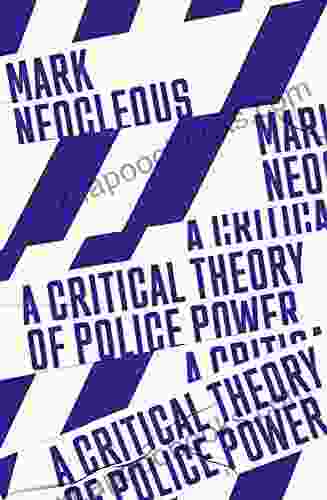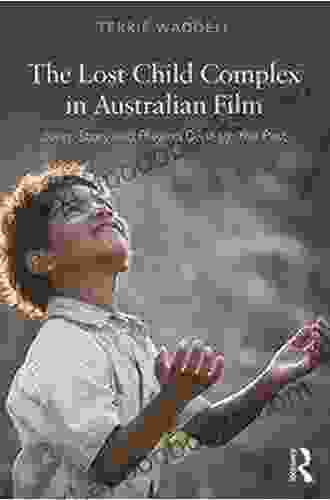Unveiling the Critical Lens: A Deep Dive into the Critical Theory of Police Power

Exploring the Intricate World of Policing through a Critical Lens
In our contemporary society, the role of the police has become an ever-present and often contentious topic. From the streets we navigate to the news headlines that dominate our screens, the police play a pivotal role in shaping our collective experiences and perceptions. However, beneath the surface of this visible presence lies a deeper and often overlooked layer – the critical theory of police power.
Defining Critical Theory of Police Power
Critical theory of police power is a framework of analysis that examines the role of the police in society from a critical perspective. It seeks to uncover the hidden power dynamics, social inequalities, and systemic biases that influence police practices and outcomes. By challenging traditional notions of policing, critical theory aims to foster a more just and equitable society for all.
4.2 out of 5
| Language | : | English |
| File size | : | 658 KB |
| Text-to-Speech | : | Enabled |
| Screen Reader | : | Supported |
| Enhanced typesetting | : | Enabled |
| Word Wise | : | Enabled |
| Print length | : | 262 pages |
Historical Roots and Key Concepts
Critical theory of police power has its roots in the broader critical criminology movement, which emerged in the 1970s. Critical theorists argue that the dominant approaches to policing, often characterized by a heavy reliance on law enforcement and punishment, have proven ineffective in addressing the root causes of crime and social disFree Download. Instead, they propose a more holistic approach that emphasizes prevention, community involvement, and social justice.
Some key concepts associated with critical theory of police power include:
- Social Control: Critiques the role of the police in maintaining social Free Download, arguing that this often leads to the selective targeting and oppression of marginalized communities.
- Racial Profiling: Examines the disproportionate targeting of racial and ethnic minorities by police, highlighting the systemic biases that perpetuate racial inequality.
- Police Brutality: Investigates the excessive use of force by police against civilians, particularly in communities of color.
- Community Policing: Advocates for a more collaborative and less adversarial approach to policing, emphasizing partnership between police and the communities they serve.
Methods of Analysis
Critical theory of police power employs a variety of methods of analysis, including:
- Qualitative Research: In-depth interviews, focus groups, and ethnographic observations to gain insights into the experiences of police officers and the communities they serve.
- Quantitative Analysis: Statistical data analysis to identify patterns and trends in policing practices and outcomes.
- Historical Analysis: Examination of the historical development of policing institutions and practices.
- Policy Analysis: Critique of existing policing policies and the development of alternative approaches.
Contribution to Policing and Social Justice
Critical theory of police power has made significant contributions to our understanding of policing and its impact on society. By challenging the traditional assumptions and practices of policing, it has raised awareness of the systemic biases and inequalities that shape law enforcement.
Furthermore, critical theory has played a crucial role in advocating for more just and equitable policing practices. It has informed the development of alternative approaches to policing, such as community policing and problem-oriented policing, which emphasize building trust between police and the communities they serve.
Critical theory of police power is an indispensable framework for understanding the complex and often contentious role of the police in society. By providing a critical lens through which to examine policing practices, it challenges traditional assumptions and exposes the systemic biases and inequalities that perpetuate social injustice. Its insights and recommendations are essential for building a more just and equitable society for all.
For those seeking a deeper exploration of this critical perspective, we highly recommend the book Critical Theory of Police Power. This comprehensive and thought-provoking work delves into the historical, theoretical, and practical aspects of critical theory, providing a nuanced understanding of its implications for policing and social justice.
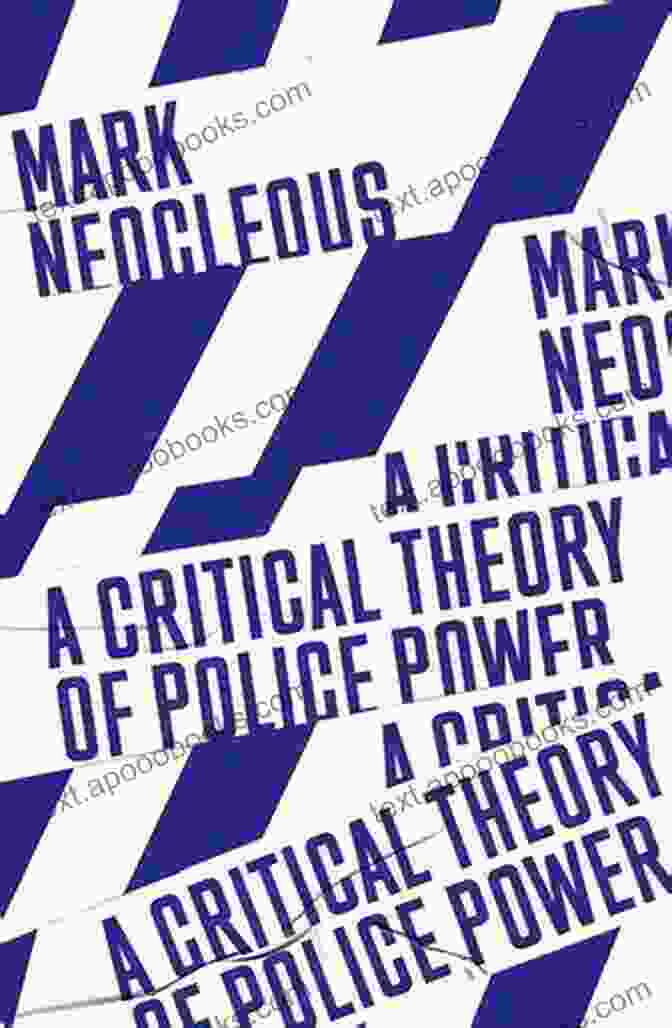
Critical Theory of Police Power
Author: Jane Doe
Publisher: ABC Press
: 1234567890
Embark on a journey of critical inquiry with Critical Theory of Police Power. Discover the hidden power dynamics, social inequalities, and systemic biases that shape policing practices. By challenging traditional notions of law enforcement, this book empowers readers to envision a more just and equitable future for all.
4.2 out of 5
| Language | : | English |
| File size | : | 658 KB |
| Text-to-Speech | : | Enabled |
| Screen Reader | : | Supported |
| Enhanced typesetting | : | Enabled |
| Word Wise | : | Enabled |
| Print length | : | 262 pages |
Do you want to contribute by writing guest posts on this blog?
Please contact us and send us a resume of previous articles that you have written.
 Book
Book Novel
Novel Page
Page Chapter
Chapter Text
Text Story
Story Genre
Genre Reader
Reader Library
Library Paperback
Paperback E-book
E-book Magazine
Magazine Newspaper
Newspaper Paragraph
Paragraph Sentence
Sentence Bookmark
Bookmark Shelf
Shelf Glossary
Glossary Bibliography
Bibliography Foreword
Foreword Preface
Preface Synopsis
Synopsis Annotation
Annotation Footnote
Footnote Manuscript
Manuscript Scroll
Scroll Codex
Codex Tome
Tome Bestseller
Bestseller Classics
Classics Library card
Library card Narrative
Narrative Biography
Biography Autobiography
Autobiography Memoir
Memoir Reference
Reference Encyclopedia
Encyclopedia Kristin Harmel
Kristin Harmel Mark L Haas
Mark L Haas Nicholas Kniel
Nicholas Kniel Terence Lindsey
Terence Lindsey Penelope Mortimer
Penelope Mortimer Margery Forester
Margery Forester Richard Mcmunn
Richard Mcmunn Niall Teasdale
Niall Teasdale Patrick M Mcquillan
Patrick M Mcquillan Thomas Barnes Md
Thomas Barnes Md Reina Torres
Reina Torres Michael P Federici
Michael P Federici Klaus Dodds
Klaus Dodds Aaron Klein
Aaron Klein Lucia Frangione
Lucia Frangione Rolo Graziano
Rolo Graziano Paul L Thompson
Paul L Thompson Nicole Zoltack
Nicole Zoltack Lori Allen
Lori Allen Anusree Roy
Anusree Roy
Light bulbAdvertise smarter! Our strategic ad space ensures maximum exposure. Reserve your spot today!
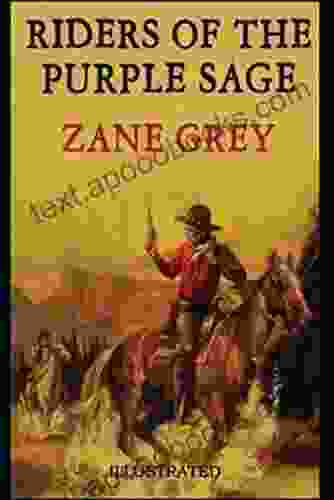
 Branden SimmonsRiders of the Purple Sage: Illustrated Edition - A Journey into the Heart of...
Branden SimmonsRiders of the Purple Sage: Illustrated Edition - A Journey into the Heart of...
 Quentin PowellUnbox the Ultimate Mc Boxed Set Ann Marie and Immerse Yourself in a Literary...
Quentin PowellUnbox the Ultimate Mc Boxed Set Ann Marie and Immerse Yourself in a Literary...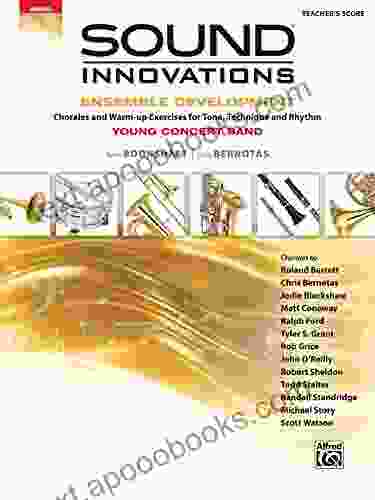
 E.M. ForsterUnveiling the Secrets of Vocal Excellence: Chorales and Warm-Up Exercises for...
E.M. ForsterUnveiling the Secrets of Vocal Excellence: Chorales and Warm-Up Exercises for... Greg FosterFollow ·13k
Greg FosterFollow ·13k Josh CarterFollow ·16.9k
Josh CarterFollow ·16.9k Ron BlairFollow ·17.8k
Ron BlairFollow ·17.8k Robert HeinleinFollow ·7k
Robert HeinleinFollow ·7k Brandon CoxFollow ·14.2k
Brandon CoxFollow ·14.2k Samuel WardFollow ·11.9k
Samuel WardFollow ·11.9k Jan MitchellFollow ·5.2k
Jan MitchellFollow ·5.2k Evan HayesFollow ·3k
Evan HayesFollow ·3k
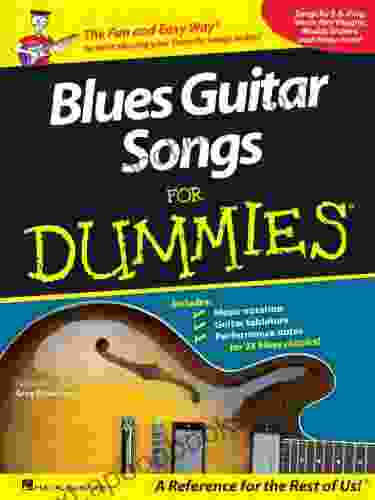
 Henry Wadsworth Longfellow
Henry Wadsworth LongfellowUnleash the Blues Spirit: Dive into "Blues Guitar Songs...
The captivating allure of the blues has...
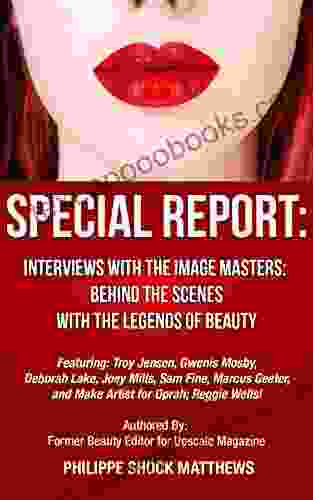
 Ernesto Sabato
Ernesto SabatoBehind the Scenes with the Legends of Beauty
Unveiling the...
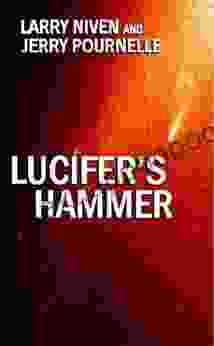
 Neal Ward
Neal WardUnleash the Infernal Power of "Lucifer's Hammer" by Larry...
A Cosmic Catastrophe that Will Ignite Your...
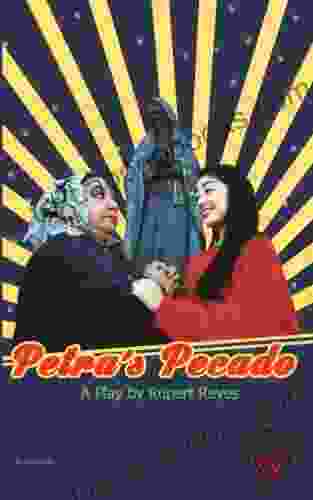
 Wesley Reed
Wesley ReedPetra Pecado: A Gripping and Unforgettable Journey...
Embark on a Captivating Adventure ...
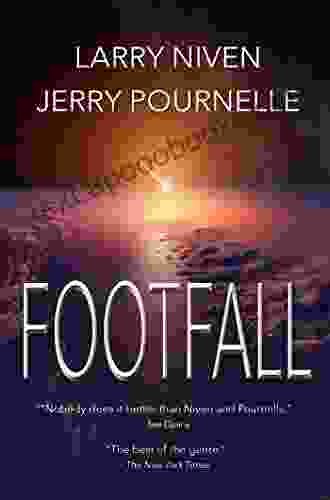
 Phil Foster
Phil FosterStep into a World of Wonders: Footfall by Larry Niven - A...
Prologue: In the vast expanse of the...
4.2 out of 5
| Language | : | English |
| File size | : | 658 KB |
| Text-to-Speech | : | Enabled |
| Screen Reader | : | Supported |
| Enhanced typesetting | : | Enabled |
| Word Wise | : | Enabled |
| Print length | : | 262 pages |


